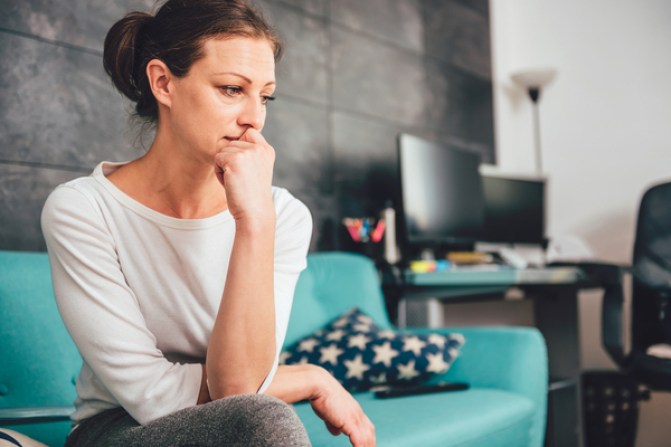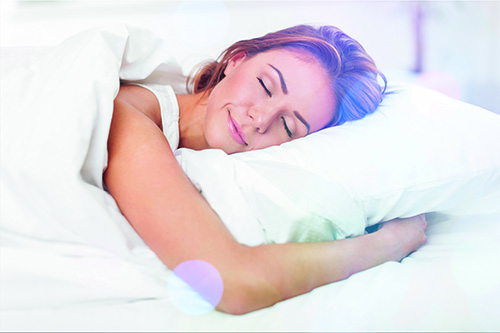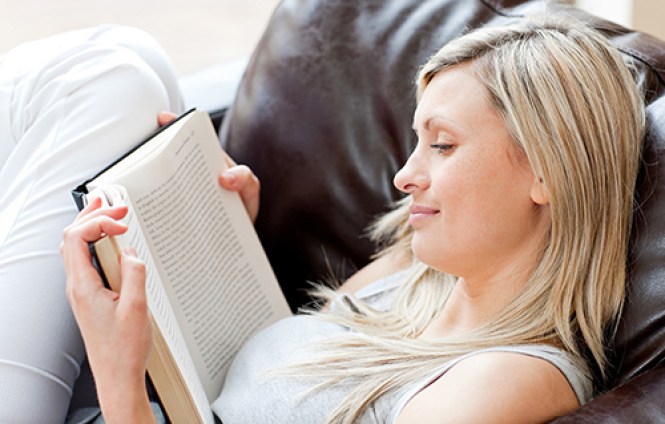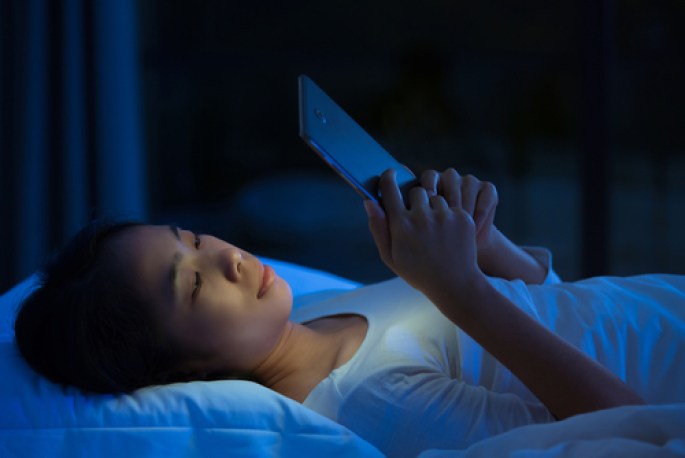Sleep is vital and yet so many of us don’t get enough. We’ve rounded up some advice and product recommendations to help you can get a good night’s sleep…
The UK has seen an overwhelming increase in the number of people reporting high stress levels. Stress is a normal bodily reaction that helps keep us awake and alert but, when it becomes excessive, it can have a negative impact on your sleep quality.
This is due to reduced mental and physical wellbeing, along with the disruption of hormone production. In fact, a new study from King’s College London and Ipsos MORI has found that 50% of the UK’s public has noted greater sleep disturbance since lockdown.
Dr Irshaad Ebrahim, co-founder of The London Sleep Centre and neuropsychiatrist, commented:
“When our internal neuro-chemical systems are working normally, they regulate biological processes like sleep, appetite, mood and energy levels. If we are stressed, the Adreno-Cortical System is dysregulated and our energy sources are diverted, resulting in sleep disruption and mood changes.
Before we sleep, it’s important to de-stress. This reduces levels of cortisol and replaces them with increased levels of melatonin, the hormone released in the brain that signals to the body it’s time to sleep.”
 The Stress- Sleep Cycle
The Stress- Sleep Cycle
The persistence of stress can in turn worsen our ability to sleep. This leads to a ‘sleep deficit,’ which is the cumulative effect of not getting enough sleep. This worsens our ability to concentrate, our mood and our productivity levels.
As a result, this can further increase feelings of stress and anxiety – it’s a vicious cycle. The physical effects of stress can also lead to a heightened risk of respiratory problems, heart disease, diabetes and obesity.
Feeling stressed increases physiological and psychological arousal in ways that are incompatible with the conditions your body and mind need to enter a relaxed, restorative sleep. When this process repeats, a stress-sleep cycle is formed. Dr Irshaad Ebrahim explains:
“Many peoples’ sleep issues are worsened through anticipatory stress, whereby we fear an outcome before the event has taken place. When this happens repeatedly, a cycle begins to form.
“The stress-sleep cycle is when feelings of stress stop you from achieving a sufficient night’s sleep, or when the thought of not achieving a good night’s sleep intensifies feelings of stress, thus exacerbating the cycle and making it harder to break.”
Top tips to reduce stress and improve sleep
In order to break the cycle and improve the quality and quantity of sleep achieved, Dr. Irshaad Ebrahim recommends making simple changes to our daily lives…
1. Have a consistent sleep schedule
No matter how your life has been affected, it’s of the utmost importance to keep a regular routine in order to achieve good sleep. Going to bed and waking up at the same time helps maintain the circadian rhythm – the body’s 24-hour internal clock. Try and wake up earlier as you’ll feel more tired by the end of the day, helping you to fall asleep.
2. Create a personalised bedtime routine
 Having a relaxing ritual you complete before bed is a great way to notify your mind and body that it’s time to go to sleep. Try reading a book, listening to a relaxing podcast, completing your skincare routine, or practising some mindfulness meditation. As long as it helps you to unwind and feel calm before bed, anything works! Why not treat yourself to a relaxing bath with these Healing Bath Salts from BAO Skincare (from £6).
Having a relaxing ritual you complete before bed is a great way to notify your mind and body that it’s time to go to sleep. Try reading a book, listening to a relaxing podcast, completing your skincare routine, or practising some mindfulness meditation. As long as it helps you to unwind and feel calm before bed, anything works! Why not treat yourself to a relaxing bath with these Healing Bath Salts from BAO Skincare (from £6).
3. Switch off your electrical devices
The internet has proved to be an invaluable tool for communication and entertainment throughout the pandemic. However, bright lights before bed can stimulate us, again interfering with a person’s circadian rhythm. Turning off your electronic devices an hour before bedtime is a powerful intervention to assist sleep.
4. Consider trying a traditional herbal remedy (THR)
 Using a herbal remedy can help to relieve stress and improve sleep. Valerian root is a popular choice that has long been used to promote relaxation, reduce stress and improve sleep, depending on the quantities consumed. Traditional herbal remedies such as Kalms Night One-A-Night Tablets (£5.25) can be used to improve sleep without experiencing drowsiness the next day, while Kalms Day (£8.25) helps to relieve stress.
Using a herbal remedy can help to relieve stress and improve sleep. Valerian root is a popular choice that has long been used to promote relaxation, reduce stress and improve sleep, depending on the quantities consumed. Traditional herbal remedies such as Kalms Night One-A-Night Tablets (£5.25) can be used to improve sleep without experiencing drowsiness the next day, while Kalms Day (£8.25) helps to relieve stress.
5. Get outside
Lockdown makes it all too easy to sit indoors at our desk all day but getting outside and exposing yourself to natural light plays an important role in keeping your circadian rhythm in balance. Exposure to outdoor light helps to regulate a hormone in your body called melatonin, which helps to regulate your sleep and wake patterns. Getting outside when it’s light is especially important at this time of year when daylight hours are much shorter.

6. Eat well and exercise
Due to lockdown, it’s easy to spend a lot of time sitting down. However, studies have shown that regular exercise and being active during the day can help you sleep better by relieving stress. Whether it’s taking a brisk walk on lunch, or completing an online workout, make sure you keep your body moving each day.
Maintaining a healthy diet is also linked with good sleep. Avoid eating large meals late at night, as these can cause indigestion and affect your sleep. Try and have a light dinner earlier in the evening and drink enough water during the day.

7. Try aromatherapy to lower stress levels
 Aromatherapy is a holistic healing treatment that uses natural plant extracts to promote health and well-being. Certain scents, such as lavender or jasmine, have been shown to reduce stress levels and promote sleep. Before bed, try using an oil diffuser with a few drops of a relaxing essential oil. Alternatively, burn a candle that is infused with essential oils, like the SLEEP WELL Aromatherapy Candle from Scentered. (£32.95) This soy wax candle features a blend of Lavender, Chamomile, Palmarosa, Ho Wood, Bois de Rose and Geranium.
Aromatherapy is a holistic healing treatment that uses natural plant extracts to promote health and well-being. Certain scents, such as lavender or jasmine, have been shown to reduce stress levels and promote sleep. Before bed, try using an oil diffuser with a few drops of a relaxing essential oil. Alternatively, burn a candle that is infused with essential oils, like the SLEEP WELL Aromatherapy Candle from Scentered. (£32.95) This soy wax candle features a blend of Lavender, Chamomile, Palmarosa, Ho Wood, Bois de Rose and Geranium.












